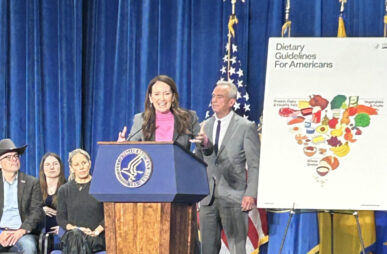Florida tests show pesticide in popular breads
Florida officials this week unveiled test results showing multiple breads commonly sold in grocery stores contained residues of glyphosate weed killer, a chemical scientists have linked to cancer.

Florida officials this week unveiled test results showing multiple breads commonly sold in grocery stores contained residues of glyphosate weed killer, a chemical scientists have linked to cancer.

A contingent of Pennsylvania lawmakers and Parkinson’s disease research and support groups on Wednesday called for the state to move quickly to ban paraquat, a weed killing chemical commonly used by farmers that scientific research links to the incurable brain disease.

On the eve of the opening of what would have been a bellwether US trial over allegations that a widely used weed killer causes Parkinson’s disease, paraquat-maker Syngenta reached a settlement with the retired landscaper who blamed the company for his diagnosis with the incurable brain disease.

A trial with nationwide implications is set to open Wednesday in Philadelphia pitting a retired landscaper suffering from Parkinson’s disease against the multinational agrochemical company Syngenta over accusations that the company’s paraquat weed killing products cause the incurable brain disease.

A leading European chemical safety institute has fired the director of its cancer research center after the director led an extensive testing program into the safety of the pesticide glyphosate, sparking concerns about chemical industry influence into what has been an independent research institution.

The US Supreme Court said on Friday that it will take up the issue of federal preemption over pesticide warning labels, a move sought by Bayer as a means of blocking costly future litigation over the Roundup weed killer products it inherited from its purchase of Monsanto.

Environmental Protection Agency (EPA) Administrator Lee Zeldin sparked news stories around the US last week when he tweeted that the agency had made the “proactive decision to freshly reassess” the safety of the weed killer paraquat, a controversial pesticide widely used by farmers that is linked to Parkinson’s disease.

New US dietary guidelines released by the federal government this week received mixed reactions from the health community, with many praising the move to explicitly advise against consuming highly processed foods in favor of whole foods but others concerned about a recommendation to consume red meat.
Lawmakers removed language in a 2026 federal spending bill that would’ve blocked lawsuits and limited state warnings on pesticide risks — a major win for public health advocates after intense lobbying. TNL Editor-in-Chief Carey Gillam explains.

In a setback for the pesticide industry, Democrats have succeeded in removing a rider from a congressional appropriations bill that would have helped protect pesticide makers from being sued and could have hindered state efforts to warn about pesticide risks.